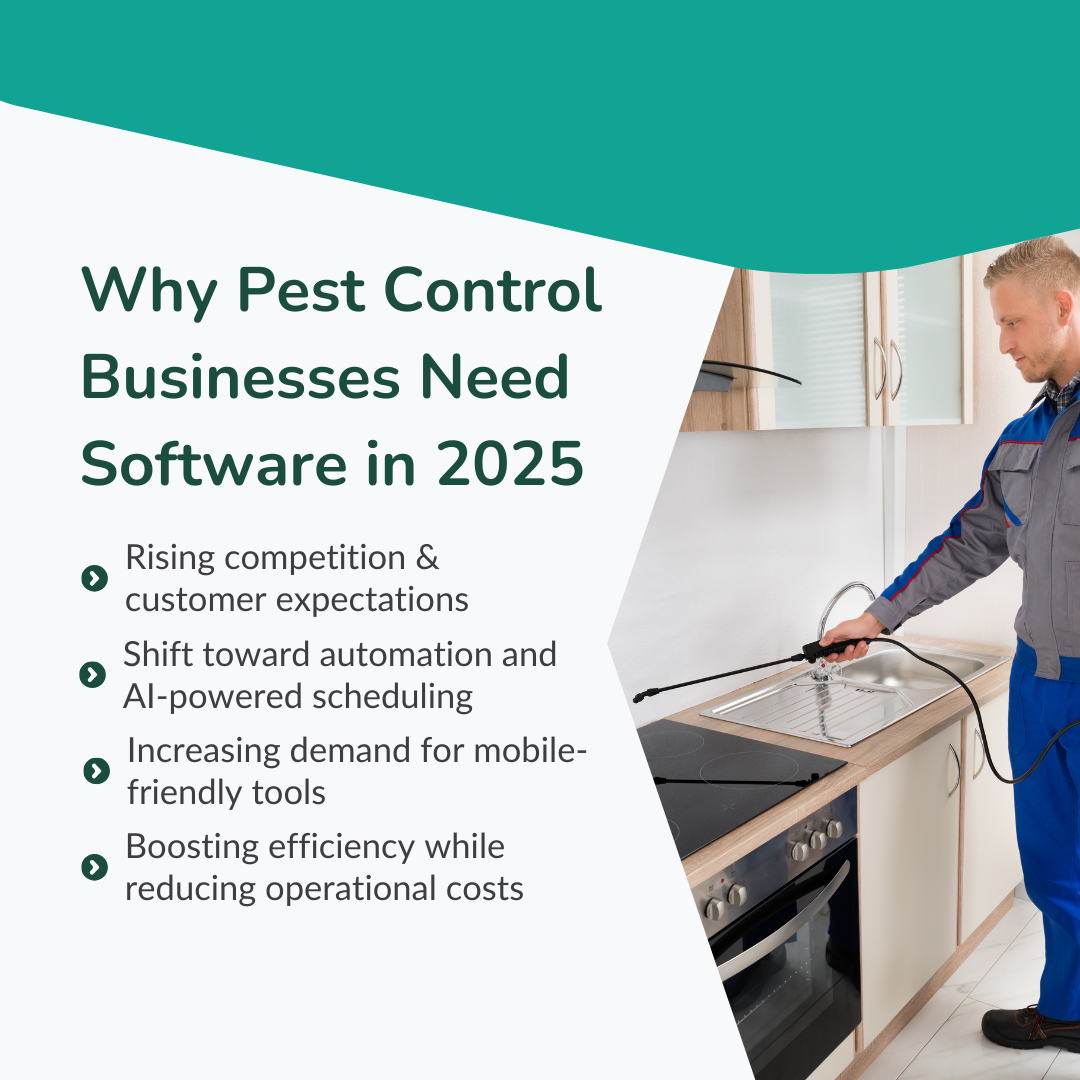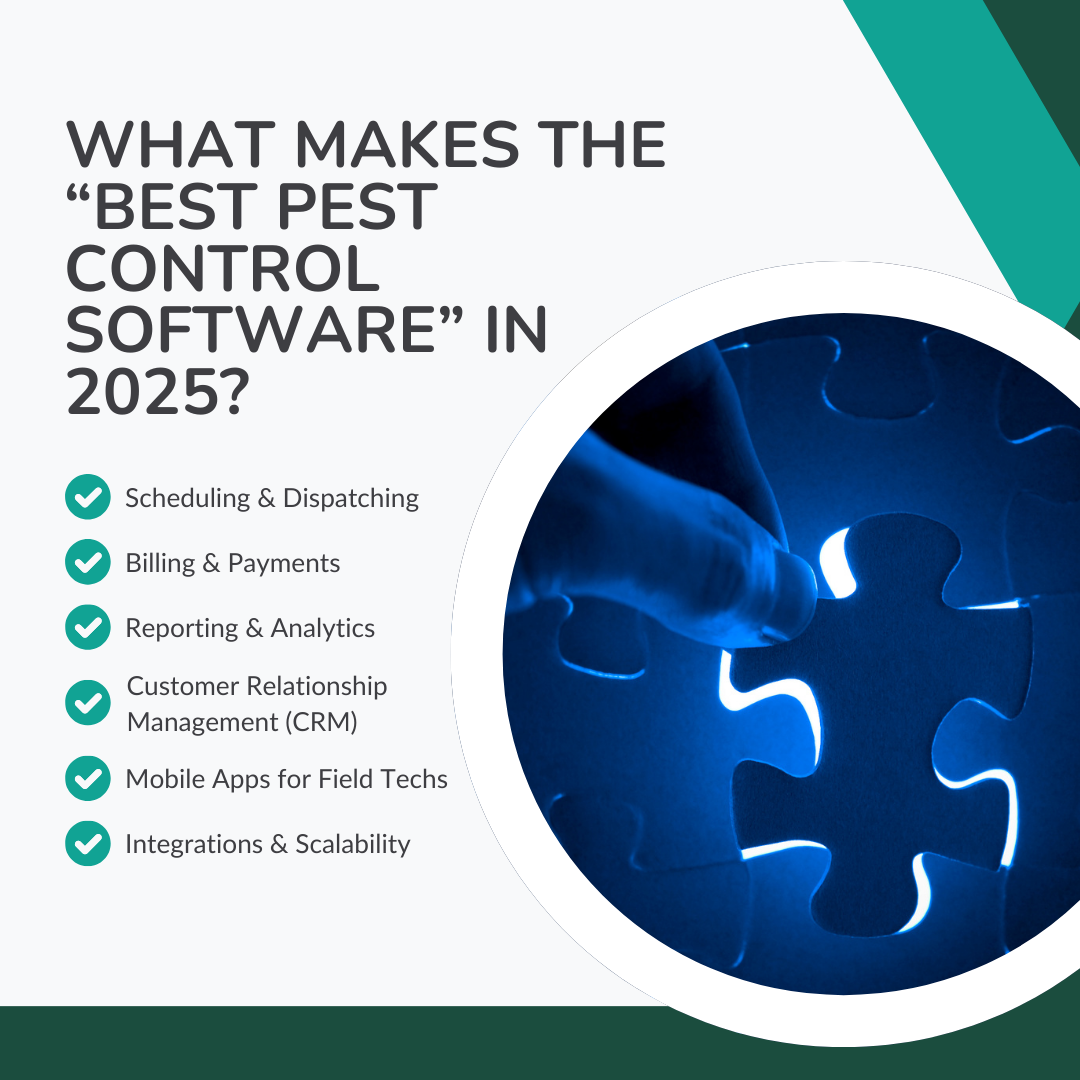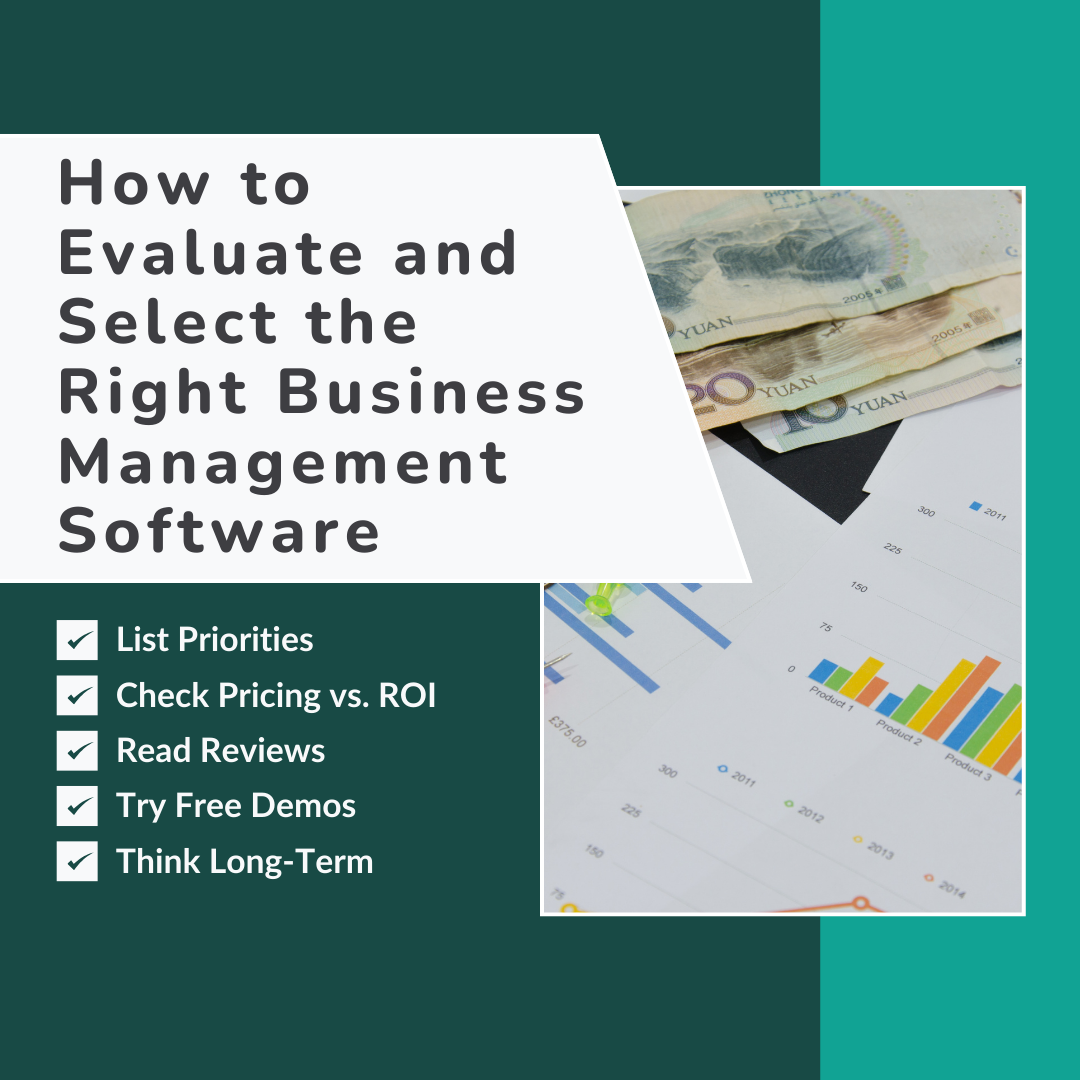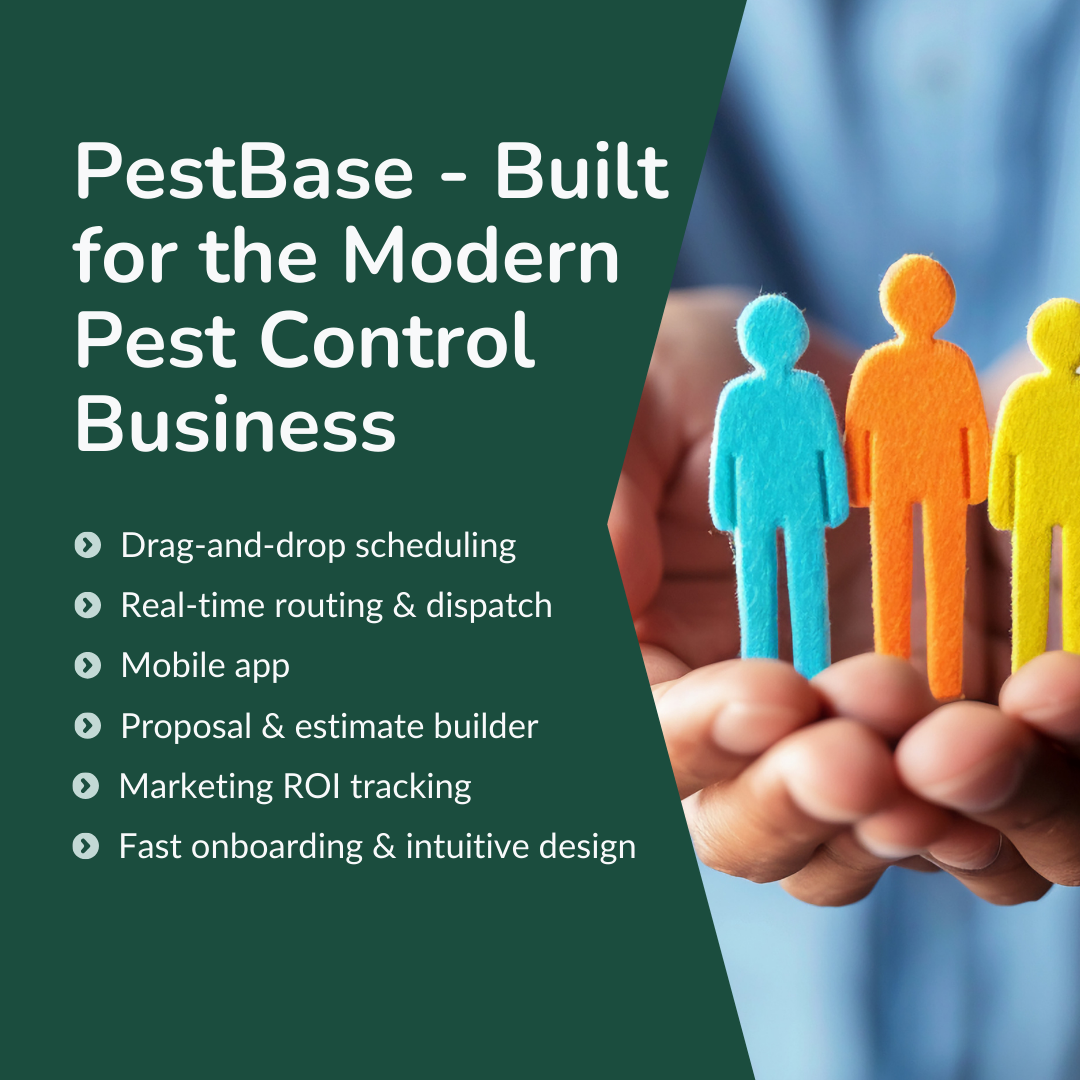September 12, 2025
It's no surprise that today’s pest control companies aren’t just fighting termites and rodents; they’re battling inefficiencies, missed appointments, and rising customer expectations.
The right software has become the secret weapon. From drag-and-drop scheduling to automated billing and real-time reporting, these tools are helping owners save time, boost profits, and, most importantly, deliver smoother customer experiences.
But here’s the catch: what’s “best” depends on your business size and priorities.
In this guide, we’ll break down what makes the best pest control software in 2025, compare leading options side by side, and share how small startups, growing teams, and large enterprises can find their perfect fit.
Let’s help you choose software that doesn’t just manage pests, it manages growth.
How to Choose the Right Pest Control Software for Your Business
Finding the best pest control software in 2025 can feel overwhelming, with so many pest control management software tools promising efficiency and growth.
Whether you run a small pest control business or manage multiple teams across locations, the right control software will help you streamline scheduling, billing, routing, and customer communications.
Right from job management and inventory tracking to marketing features and customer portals, today’s business management software empowers pest control companies to save time, win more customers, and deliver unparalleled customer experiences.
Key Takeaways
- Pest control software in 2025 is essential for efficiency, automation, and customer satisfaction.
- The “best” software depends on business size, priorities, and scalability.
- Tools like PestBase, Jobber, and ServiceTitan cater to different growth stages.
- Smart automation and mobile-first features are the future of pest control management.
Why Pest Control Businesses Need Software in 2025

Did you know the global pest control software market is projected to grow from USD 26 billion in 2025 to USD 53.1 billion by 2035, registering a steady CAGR of 7.4%?
This data simply indicates that in 2025, the pest control industry is more competitive than ever. Customers expect instant responses, seamless scheduling, and digital convenience. For pest control companies and field service businesses, adopting the best pest control software isn’t just about keeping up; it’s about staying ahead.
Modern pest control management software transforms daily operations by:
- Rising competition & customer expectations: Customers want faster service, clear communication, and easy-to-use online portals. A pest software helps you deliver all of this effortlessly, keeping your clients happy and loyal.
- Shift toward automation and AI-powered scheduling: Smarter route planning means technicians spend less time driving and more time serving customers. It reduces travel costs and boosts productivity, letting your team do more each day.
- Increasing demand for mobile-friendly tools: Field staff can update jobs, capture digital signatures, invoice instantly, and access customer information on the go. This keeps work flowing smoothly and eliminates back-and-forth with the office.
- Boosting efficiency while reducing operational costs: Automated billing, inventory tracking, and job management reduce manual work. Less time on admin means more time growing your business and serving clients.
The right pest control business software helps operators streamline processes, enhance customer experiences, and drive growth in a rapidly evolving market.
A must-read: Pest Control Software vs Manual Scheduling: Why It Matters
What Makes the “Best Pest Control Software” in 2025?

Choosing the best pest control business software in 2025 isn’t about finding the tool with the longest feature list; it’s about identifying the features that truly help your pest control businesses save time, reduce costs, and deliver better customer experiences.
Modern pest control management software is designed to handle everything from scheduling to sales, allowing pest control operators to focus more on service and less on admin work.
Here are the core features that matter most:
1. Scheduling & Dispatching:
Tools with drag-and-drop calendars, bulk scheduling, and AI-powered route optimization keep teams efficient and customers happy.
2. Billing & Payments
From online payments and auto-billing to QuickBooks integration, invoicing should be seamless and help companies get paid faster.
3. Reporting & Analytics
Instead of relying on guesswork, real-time reports give you a clear picture of what’s actually happening in your business.
You can see how productive each technician is, which services are bringing in the most revenue, and where compliance gaps might exist.
4. Customer Relationship Management (CRM)
A built-in CRM keeps all customer information organized and accessible. It helps you track service history, send reminders, manage follow-ups, and request more customer reviews to boost trust.
5. Mobile Apps for Field Techs
Field technicians don’t have time to shuffle through paperwork or make endless phone calls. With a mobile app, they can update job status in real time, collect digital signatures on-site, and send invoices the moment a job is done.
6. Integrations & Scalability
Whether it’s inventory management, GPS, or marketing tools, integrations ensure your business management software grows as your company grows.
Ultimately, the best pest control software tools combine usability, automation, and marketing power to deliver unparalleled customer experiences and sustainable
business growth.
Top Pest Control Business Software in 2025
1. PestBase
Why it stands out: PestBase is a modern pest control business software designed for small to medium teams who want speed, simplicity, and smart automation.
Key Features:
- Lead capture through website forms, ads, or referrals with auto-assignment and nurture via texts/emails.
- Centralized CRM to track customer history, jobs, and service records from first contact through the customer lifecycle.
- Drag-and-drop scheduling, real-time route management, and auto tech notifications to boost pest control routing software efficiency.
- Branded proposals and estimates with auto-calculation (pricing, taxes, discounts) and e-signature to close deals faster.
- Field technician app allowing job updates, check-in/out, treatment notes, and instant online payments via mobile.
- Send invoices instantly after job completion, accept online payments, and set up recurring billing for maintenance contracts to keep cash flow smooth.
- Map out neighborhoods, log visits, track rep performance, and follow up with interested homeowners all in one platform to convert more local leads efficiently.
Pricing: Schedule a demo today and talk to our experts to learn more about pricing details.
2. ServiceTitan (FieldRoutes)
Why it stands out: ServiceTitan’s FieldRoutes is a robust pest control management software built for large enterprises needing deep insights and automation.
Key Features:
- Unified dispatch, scheduling, and invoicing tools that scale across teams and locations.
- Advanced route optimization, autopay, and customer communications such as digital reminders and auto-payment options.
- Marketing automation with ROI tracking for smarter marketing strategies.
- Real-time dashboards and integrated reporting for compliance, sales performance, and profitability tracking.
- API integrations with QuickBooks and third-party tools to expand your business management software ecosystem.
- Track parts and materials across trucks and warehouses in real time, preventing stockouts and reducing waste.
- Build and send dynamic estimates with pre-loaded service items, pricing, discounts, and financing options to close jobs faster.
Pricing: Offers "Starter", "Essentials", and "The Works" packs with an option to request pricing through demos.
3. Jobber
Why it stands out: Jobber is a field-service-first pest control software tool ideal for small to mid-sized companies seeking mobile-first efficiency and simple workflows.
Key Features:
- Full workflow from quoting and scheduling to invoicing and payments, all in a user-friendly app.
- Chemical usage tracking, job forms, checklists, and GPS waypoints for organized job management and routing. Real-time customer communications and professional online experience to build trust and deliver unparalleled customer experiences.
- Financial insights, including profit tracking, expense logging, and instant payout, to manage business health effectively.
- Integrations with payment apps and QuickBooks for smoother office operations and inventory tracking.
- Jobber allows users to schedule recurring maintenance jobs, which is important for subscription or repeat service models.
Pricing: Plans start around $25/month for Core, with higher-tier options up to $126/month; a 14-day free trial is available.
4. PestPac
Why it stands out: PestPac is enterprise-focused field service management software built for structured operations that require compliance and scheduling rigor.
Key Features:
- End-to-end scheduling, routing, dispatching, and inventory management tailored to pest control workflows.
- Tools for compliance tracking, chemical logs, regulatory forms, advanced reporting, and over 100 custom forms via Business Analytics.
- Scaling support from solo operators to multi-location teams.
- Personalized customer portal features, multi-unit billing, and API integrations for broad operational control.
- Field-savvy mobile apps and structured workflows that drive consistency across teams
- PestPac also emphasizes customizable dashboards for KPIs, technician performance, and revenue tracking.
Pricing: Three editions (Small Business, Professional, and Enterprise); pricing by quote, with no free trial.
5. Housecall Pro
Why it stands out: Housecall Pro is user-centric business management software built for pest control companies focused on customer-first operations and growth.
Key Features:
- Intuitive tools for job scheduling, recurring jobs, drag-and-drop dispatch, and GPS-enabled “on my way” messages to enhance customer communications
- Customizable price book and estimating tools integrated with QuickBooks, providing transparent, consistent pricing and sales tools
- Automated invoicing, reminders, and multiple payment options, including credit cards and bank transfers, help you manage money.
- Built-in marketing automation (emails, postcards) to bring more customers and generate more leads.
- Saves users on average 8+ hours weekly and grows revenue through improved efficiency and communication
Pricing: Starts around $79/month if billed monthly; offers 14-day free trial plus optional add-ons, GPS tracking ($20/vehicle), recurring plans ($40/month), and more
Summary Table
| Software | Audience & Fit | Pricing & Trial Info |
|---|---|---|
| PestBase | Small–medium, growth-focused | Schedule a demo today to know |
| ServiceTitan | Large enterprise, deep features | High-end pricing, annual contract |
| Jobber | Small–mid teams, mobile-first | $25–$126/month; 14-day free trial |
| PestPac | High-volume, compliance-heavy ops | Quote-only; no free trial |
| Housecall Pro | Customer-first, scaling operators | ~$79/month; 14-day free trial + paid add-ons |
More at: Best Pest Control Software for Small Businesses in 2025
Decision Criteria by Business Size to Cater to More Customers
Choosing the best pest control software hinges on your business size and goals. Here’s what matters most at each stage:
> Small Businesses & Startups
If you're just starting your day filled with service calls, leads, and chasing quotes, what you need is affordable, easy-to-adopt pest control management software. Your priorities include simplicity, mobile usability, and reliable support.
Your software should also help keep billing, routing, scheduling, and customer lifecycle management light and effortless.
Popular picks include PestBase (intuitive setup with lead-to-invoice flow, proposal e-signatures), Jobber, and Pipedrive (known for its slick UX and CRM functionality).
“Small businesses should prioritize ease of use and responsive support over complex features they won’t use.”
> Medium & Growing Businesses
Here, workflow automation, inventory management, route optimization, and recurring billing become essential. The right pest control business software helps your team manage jobs more efficiently, automate customer communications, and keep tabs on operational costs.
Jobber, Housecall Pro, and PestBase are excellent choices; they scale smoothly while powering your office operations, sales tools, and marketing features.
> Large Enterprises
Big operations need a powerful business management software backbone, think API integrations, regulatory compliance, multi-location reporting, and enterprise-grade CRM.
Tools like ServiceTitan and Salesforce fit the bill beautifully. Even PestBase shows promise with its scalable cloud design.
> Specialization by Client Base
Your software choice should also align with your service model. Residential, commercial, or specialty pest niches each have unique needs, like job management, chemical tracking, or pest control routing software workflows.
Custom-fit tools help deliver operations that not only serve customers but also delight them.
How to Evaluate and Select the Right Business Management Software

Choosing the best pest control software isn’t about picking the cheapest—it’s about finding software designed to save time, grow your pest control business, and deliver unparalleled customer experiences. Here’s a simple framework:
- List Priorities – Do you need pest control scheduling software, routing software, or a customer portal?
- Check Pricing vs. ROI – Consider credit card payment fees, online payments, and whether the business management software helps you get paid faster.
- Read Reviews – Look for more customer reviews from other pest control companies and field service businesses.
- Try Free Demos – Most pest control management software tools offer a free demo with real-time data.
- Think Long-Term – Will this management software support automation, marketing strategies, and route optimization as you gain more leads and new customers?
The right pest control business software doesn’t just streamline jobs—it frees your team to focus on sales, operations, and customer communications, ensuring growth and more cross-sell opportunities.
Side Tip: “Don’t just choose the cheapest, choose what makes your team’s daily life easier.”
Also, Understand Why Spreadsheets Are Killing Your Pest Control Business.
Future Trends in Pest Control Software (2025 and Beyond)
- AI-based route optimization: The best pest control software will use AI-driven pest control routing software to save time, cut costs, and deliver unparalleled customer experiences.
- Predictive analytics for customer churn: Modern pest control management software will leverage real-time data to track the customer lifecycle and help pest control companies win more customers with smarter marketing strategies.
- IoT-enabled pest monitoring tools integrated with software: Connected devices will feed live pest activity data into pest control business software, empowering operators to automate office operations, improve job management, and upsell services to commercial accounts.
Spotlight: PestBase - Built for the Modern Pest Control Business

PestBase is a cloud-based pest control business software designed to simplify operations for both office admins and field technicians. It focuses on efficiency, automation, and ease of use, helping pest control businesses save time and boost revenue.
Key features include:
- Drag-and-drop scheduling: Scheduling becomes fast, flexible, and stress-free. Through PestBase, you can rearrange schedules and manage your team without juggling spreadsheets or sticky notes.
- Real-time routing & dispatch: Technicians get optimized routes and instant updates, reducing travel time, fuel costs, and missed appointments—so your team can get more done in less time.
- Mobile app: Everything is captured in real-time. So, techs can update jobs, add notes, upload photos, and even invoice on-site. No more back-and-forth with the office or lost paperwork.
- Proposal & estimate builder: Create branded proposals and estimates with accurate pricing, taxes, and discounts. Digital e-signatures make approvals faster, helping you close deals quickly and professionally.
- Marketing ROI tracking: Measure which campaigns bring in leads and revenue, so you can invest in what actually works and grow your customer base efficiently.
- Fast onboarding & intuitive design: PestBase is easy to learn and use, eliminating the headaches of complicated software so your team can focus on service rather than training.
- Detailed Reporting & Analytics: Gain insights into technician productivity, revenue per job, and overall business performance. Make smarter decisions based on real-time data, not guesswork.
With its field-first approach and all-in-one functionality, PestBase stands out as a modern solution for pest control businesses in 2025.
Conclusion
As the pest control industry races into 2025, one truth stands out: the right pest control business software isn’t just about managing operations, it’s about unlocking growth.
Whether you’re a small startup or a multi-location enterprise, tools like PestBase and other leading platforms help you save time, increase sales, and deliver unparalleled customer experiences.
By choosing software that fits your priorities today and scales for tomorrow, you’re not just managing pests, you’re building a smarter, stronger business.
About PestBase
Pestbase is an all-in-one pest control management software built to simplify scheduling, billing, and customer tracking, while helping businesses grow with built-in marketing and automation tools. Schedule a demo today to unlock scalability!
FAQs
1. What reporting and analytics should I look for?
Look for real-time dashboards that track technician productivity, revenue per job, chemical usage, and compliance logs. These insights help you spot inefficiencies, reduce errors, and plan smarter marketing campaigns.
2. Who should use pest control software?
It’s designed for pest control companies of all sizes to streamline operations, manage teams, and deliver better customer experiences.
3. Why choose Pestbase over others?
Pestbase combines scheduling, billing, and marketing automation in one platform, offering growth-focused tools that competitors often lack.
4. Will switching to pest control software disrupt my current operations?
Most modern platforms offer fast onboarding, intuitive design, and support to minimize disruptions. Small teams can start with core features and scale up as needed.
